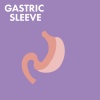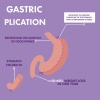Malabsorptive Vs Restrictive Weight Loss Surgeries: What’s The Difference?
Bariatric surgery has been and continues to help people lose a substantial amount of weight and keep it off. The benefits are that it allows patients to avoid any serious health complications related to obesity, such as cardiovascular disease, high blood pressure, and type-2 diabetes. It truly can change your life and health outlook forever.
There are several different types of bariatric procedures being performed currently. While they may differ, all of them fall into one of three categories, such as restrictive, malabsorptive, or a combination of restrictive and malabsorptive. The success of any one of the available bariatric surgeries depends on the patient’s adherence to lifestyle and dietary recommendations.
Malabsorptive Weight Loss Surgery
Malabsorptive procedures enhance weight loss by altering the structure of the digestive tract, allowing food to bypass portions of the small intestine, decreasing the surface for nutrient and caloric absorption . The only truly strictly malabsorptive weight loss surgery is biliopancreatic diversion. The two combination restrictive and malabsorptive weight loss surgeries are Roux-en-Y gastric bypass surgery and duodenal switch surgery.
The oldest and most common type of bariatric or malabsorptive weight loss surgery is gastric bypass surgery. It has a significant impact on a patient’s lifestyle afterward and requires the greatest amount of dietary change. In this procedure, a large and inferior portion of the stomach is physically separated. The top portion also called gastric pouch is then connected to a loop of bowel that is rerouted to this location. This pouch becomes your “new” stomach. It’s considered restrictive because the pouch is about the size of an egg and can only hold a small amount of food.
A patient’s stomach size is not only reduced, but the intestines are also rerouted during this surgery. Since nutrients now pass through a shortened intestine, there’s less opportunity for nutrient and caloric absorption, which is the malabsorptive component of the surgery. You’ll lose additional weight because fewer nutrients are being absorbed. Following this type of procedure, the number of calories, fat, and nutrients that can be absorbed during digestion is reduced. Therefore, it’s one reason why patients who opt for this surgery are prescribed supplements to ensure the body gets the right vitamins and minerals it needs to remain healthy.
Restrictive Weight Loss Surgery
Restrictive weight loss procedures promote weight loss by making changes to stomach capacity. Restrictive weight loss surgery uses techniques to decrease the stomach’s natural capacity while leaving the rest of the gastrointestinal tract intact. The two most popular types of restrictive weight loss surgeries are sleeve gastrectomy and gastric plication. Below are the details of each.
Sleeve gastrectomy: In this procedure, which is usually performed laparoscopically, about 70 to 80 percent of the stomach is removed, including the portion responsible for producing the “hunger hormone,” ghrelin, and other hormones. The metabolic changes achieved with a sleeve have been compared to the ones with gastric bypass. This results in the stomach taking on the shape of a tube or “sleeve” which holds much less food. Although classified as restrictive, some view it as a combination of the two since it can reduce the body’s absorption of some nutrients that normally are broken down by stomach acid.
Gastric plication: involves an enfolding of the stomach, making it a tubular shape. Similar to sleeve gastrectomy, the stomach size is significantly decreased, which allows patients to reach satiety (not feeling hungry) faster. They feel full faster, too, and are likely to consume less food. However, Gastric plication does not require removal of any of the stomachs like it does with sleeve gastrectomy. Therefore, it’s reversible.
Making the Choice
There are two ways in which bariatric surgery promotes long-term and substantial weight loss. As you now know and have learned, bariatric procedures are either restrictive, malabsorptive, or a combination of the two.
The leading forms of weight loss surgery use at least one of these two methods:
- Gastric plication
- Sleeve gastrectomy surgery
- Gastric bypass surgery
- Duodenal switch surgery
- Biliopancreatic diversion procedure
The ultimate goal of these surgeries is for weight loss to occur. However, you must remember that as the patient you need to follow the recommendations to receive the full benefits of the surgery. Most patients will benefit from any one of these procedures, as long as the recommendations and lifestyle changes are being followed properly. Lack of adherence is often associated with less weight-loss. Both malabsorptive and restrictive weight loss surgeries have pros and cons or benefits and risks to weigh and consider. You must know what to expect and what might be best given your circumstances before you decide what’s right for you. It’s wise to consult and speak with a surgeon who can walk you through the surgeries in greater detail and make a suggestion based on an evaluation. You may think you know which one will be ideal for you but that might change based on the conversation you have with your surgeon and what they see and learn in your visit with them.
Conclusion
These are the primary differences you need to know about when it comes to malabsorptive versus restrictive weight-loss surgeries. You may now feel one way or another about each given the facts and what they all entail. It’s not always an easy choice regarding which will be best suited for you or what you feel most comfortable following through with at the end of the day. What’s most important is that the solution is right for you and your body and that you come to a conclusion together with your surgeon that you both agree to and believe will deliver positive long-term results.
Keep in mind that you also need to be prepared to follow the recommended postoperative guidelines and suggestions if you want to reap the full benefits and ensure you lose the amount of weight you need to for staying healthy and well. You should now feel more confident in your decision-making process given this information and the differences between malabsorptive and restrictive weight-loss surgeries.

